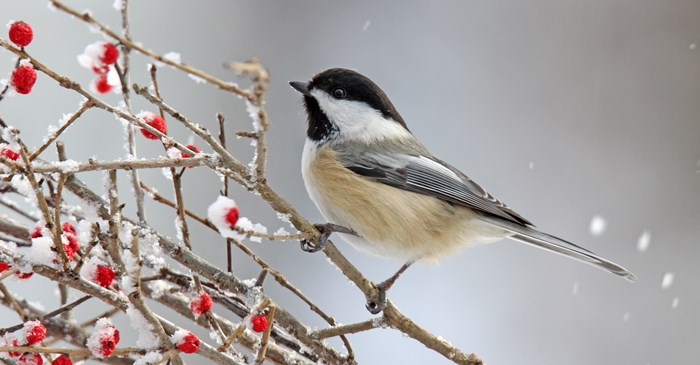As we work our way through the short, cold, and often grey days of February, it’s a good time to remember how much we’re needed by our winged friends.
To help promote awareness each year, February was declared National Bird Feeding Month by Congressman John Porter (R-IL) in 1994. The late environmentalist established the tradition to encourage Americans to provide food, water, and shelter for birds during what often turns into the harshest time of the year.
What can you do to honor that tradition? One of the best ways you can support our feathered friends is by providing a variety of foods and shelters for them during these cold months. As you make your plan, here are some common myths about supporting our feathered friends during the winter months that you may want to be aware of.
Myth 1: Birds can become dependent on your bird feeders. In fact, birds instinctively look for food in the wild. During the cold winter months, food sources are reduced or eliminated, making it hard to find the nutrition they need. Providing easy-to-find nutrition sources, such as Lyric Delite no-waste wild bird food actually helps them preserve their energy and boost their chances of survival.
Myth 2: Birds can eat table scraps. Human food can be harmful to birds. Examples of potentially detrimental human foods include chocolate; salted foods; fried foods; raw meats; milk; garlic; spices and cooking oils. Bread provides little nutritional value, and any food that’s spoiled could cause illness -- just as it does in humans.
Myth 3: Feeding birds during the cold season can keep them from migrating. Birds that migrate use cues from weather, daylight, and genetic instinct – not the availability of food -- to decide how and when to migrate. Well-stocked birdfeeders simply help give them the energy they need to continue their migratory journey.
Myth 4: All birds like all feeds. Various species have different food preferences when it comes to seeds, nuts, fruits, plants, and insects. Some will simply refuse (or push away from the birdfeeder) elements in a seed mix that don’t appeal to them. You may wish to research the birds most common to your area so you can tailor your mixes according to local tastes and consider using Lyric’s No-Waste mixes to put in your feeders. Our No-Waste mixes are 100% free of shells and hulls so birds can enjoy the mix without letting anything go to waste.
Myth 5: Birds can find their own water sources in the winter. In truth, locating enough H2O to drink in frozen climates can be challenging, especially since they’re missing out on much of the water otherwise found in fresh fruits, plants, and insects. Although birds can eat snow, contrary to popular belief, it essentially costs them precious energy to warm the snow up to their body temperature, which can be costly in the harsh cold. Providing a heated birdbath can help remedy this problem. Birds can use them for both drinking and bathing during the cold months.
Myth 6: Birdfeeders don’t require maintenance. To prevent the spread of illness, birdfeeders should be emptied and cleaned in hot, soapy water (or a dilute bleach solution of no more than one part bleach to nine parts water). Be sure to do this every couple of weeks (or more as needed) to remove bird droppings, moldy seeds, unwanted hulls, and general bacteria, especially if the weather has been damp. To deter rodents, you may also wish to rake up and remove seeds that have been pushed off and scattered on the ground beneath feeders.
In honor of National Bird Feeding Month, do your neighborhood birds a big favor by treating them to the multiple nutrients found in Lyric Wild Bird Food Delite No-Waste Mix. Featuring all pre-hulled ingredients, it’s specially designed to appeal to a wide variety of popular birds including chickadees, woodpeckers, and finches.
